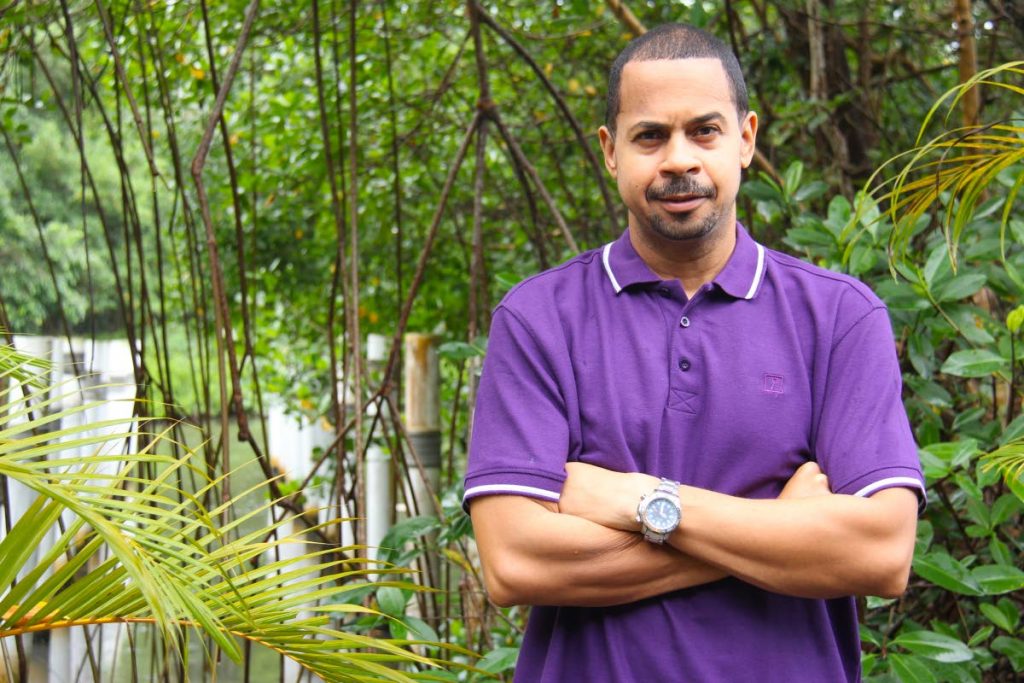Trini dictionary

PEOPLE ON social media absolutely love to pounce on the language blunders of broadcast journalists. The most recent one was a damn near fatal mispronunciation (or misspronounciation if yuh nastay) of the word Venezuelans. A hapless TV reporter wandered into the gaping maw of the grammar police when uttering the word “Venezuelians.” Well, they let her have it with both supercilious barrels.
Now, it’s a reasonable expectation that people hired to speak on television should have a decent grasp of the English language. Outside of a television station, though, I’ve heard this word mispronounced more often than spoken correctly by ordinary citizens. In time, the Venezuelans among us will come to appreciate that they are, in fact, Venezuelians.
Still, the social media language patrol falls on slip-ups made by TV and newspaper reporters like vultures on a roadside buffet.
In fact, for several years one reader of my columns would only ever e-mail me when he sniffed out an error in a weekly entry. “Aha Paolo! I caught you again! It is ‘horde’ not ‘hoard.’”
I would reply with an acknowledgement of the error and my gratitude for his keen eye and utterly vacant retirement years. “Right again...you devilish old fa--! Always glad to be of service in keeping the mind supple. Man can’t live by the crossword alone.”
I was always grateful for his corrections. I try to be better at what I do every day so I took his comments, not in the spirit in which they were intended, but for the result they produced.
Still, journalists and writers have a sacred oath to represent the English language properly.
This is true even if they come to their professions pre-programmed with malapropisms and mispronunciations picked up from their schools, parents and communities.
Take, for instance, some of the negative comments directed at the Venezuelan migrants. “We don’t speak Venezuelan here. We speak the Queen’s English!” OK, well Venezuelan isn’t a language and what most Trinis speak is the furthest thing from the Queen’s English.
It’s probably tough for any bilingual Venezuelan to process that insult, coming as it has from the fine people who brought you classics like “Go back which pat allyuh come from” and “Why allyuh doh return back...”
The hard truth is our people, from varying strata of society, speak poorly. Egregious diction is common among business leaders, trade unionists, teachers and, consequently, many broadcast journalists.
Our politicians are guilty of this as well. In Parliament, politicians seem incapable of debate or even stringing coherent sentences together. Secondary school students should be banned from visiting the House of Misrepresentatives, if only for the students’ own intellectual well being.
As a society, we don’t think of language or communication as important. Children are exposed to bad habits in primary schools through teachers. Many of today’s educators perpetuate the prevailing unintelligible speech patterns inherited through their own upbringing and community immersion.
“Anh ah tell she do dat arreddy. Ah go do fuh she!” These were the last words I heard coming from a group of girls in school uniform before I quickly switched sidewalks while returning to my car recently.
This is the dominant speech infiltrating all areas of life.
Yet we take tremendous pride in our dialect, to the point of aggressively defending our right to pluralise the word know. So when you say, “I knows nuttin’ about that,” it makes the distinction between “Well I might know something” and “I’m completely clueless.” The certainty is implicit in the superfluous s.
Now don’t get me wrong, I love Trini dialect. It’s deployed liberally in my writing. It’s a huge part of our culture and melodramatic way of telling our stories. When someone says, “De man gorne in de river and drong in one foot ah water yes!” there is no coming back from that. Had he “drowned,” on the other hand, he might have had a chance. Drowning somehow seems less final than “drongin’.”
Citizens, though, should be able to straddle our treasured dialect and Standard English. Whether the Government accepts it or keeps praying for oil, we either diversify or die. Saving this country is going to mean going out there into the competitive global marketplace and speaking English other English speakers can follow.
Yes, we need to be able to look to our journalists as the standard of proper diction. Each of us, though, must learn to speak in a language that opportunity understands. This, by the way, also means learning other languages.

Comments
"Trini dictionary"